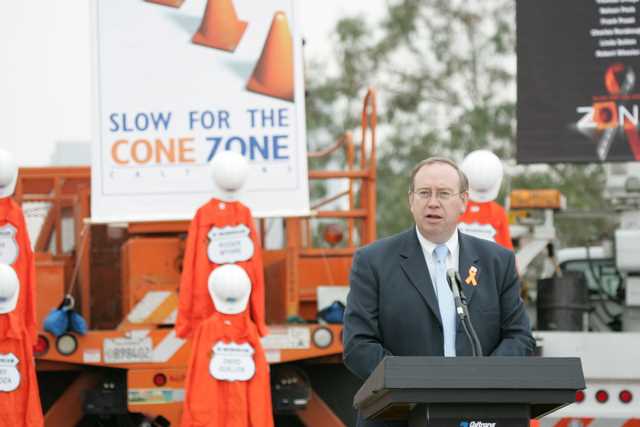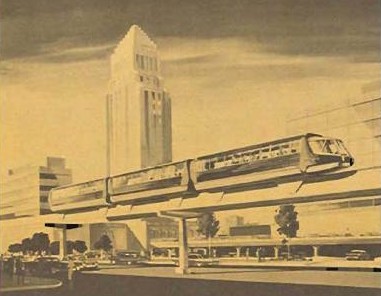
"It's a bloodletting."
While Metro's public relations team is portraying the departure of several high-profile senior staff as nothing more than the by-product of a reorganization, some in Metro's personnel believe the staff shakeup is being pushed by CEO Art Leahy to best prepare the agency for the massive construction projects that are coming online.
As one Metro spokesperson, who was speaking on background as he is not authorized to speak about personnel matters noted, Metro has historically only worked on one rail transit project at a time. It is currently building three, with two more projects about to come online. A major change in the type of projects Metro is overseeing construction of naturally leads to a change in the structure of the agencies project delivery departments.
But that can only explain so much of the "bloodletting."
A second explanation is offered in the Pasadena Star-News. Following a motion by Glendale City Councilmember and Metro Board Member Ara Najarian, Metro hired professional consultants to examine the agency. Their report showed an agency that is overstaffed leading to Leahy's effort to streamiline the agency.
“It’s an attempt to streamline the upper management of Metro and to make sure we are operating as efficiently as possible,” Najarian said. “We felt that it was getting a little too bureaucratic and at least at the top level we were losing sight of our core mission and our core direction and too much involved in the day-to-day management of departments and divisions of departments.”
Michelle Lopes Caldwell, Metro's chief administrative services officer, Roger Moliere, Metro's executive director in charge of real estate, and Doug Failing, Metro's executive director of highway programs, have all left the company in recent weeks. Two different sources, and the Los Angeles Times are saying that Terry Matsumoto, the agency's chief financial officer is next. The departures are happening so quickly, that Metro's online "management staff directory" has the wrong people listed as the heads of at least four departments.
The biggest departure is Doug Failing, who previously served 29 years at Caltrans including running the District 7 Office in Downtown Los Angeles. While Metro staff assured me on Thursday that the long-time transportation executive was just the victim of a reorganization. Both Failing and Bryan Pennington were candidates for the new position heading the construction department that will include highway and rail construction. When Pennington was offered the position, Failing chose to retire.
At least that's the quasi-official story. While Failing hasn't publicly commented on his departure, friends noted his LinkedIn account now features a sarcastic comment about being laid off and unemployed. Former colleagues, again speaking on anonymity, referred to Failing's departure as a "firing."
Pennington was a manager in the rail delivery program, but not the head of that division in Metro so his new position is a double-promotion of sorts. He went from "upper-middle-management" to reporting directly to the CEO heading a department double the size of the one he worked in previously.
Pennington reported to K.N. Murthy, the former director of rail delivery, who will stay on at the agency in a new role.
Despite Failing being the head of a department that pushed some of Streetsblog readers least popular Metro programs, the High Desert Corridor, the I-710 Big Dig and Carmageddon to name a few, there was little doubt that he was well liked even among his detractors.
"The relentless pursuit of the 710 freeway projects is probably Metro's most misguided, mismanaged and fiscally disastrous undertakings and Doug was probably ported over from Caltrans to further their infernal highway pursuits," writes Judy Bergestresser with the NO-710 Coalition. "...but he's so darn likeable it's hard to hold him responsible."
Questions about the future of the controversial 710 expansion project, which Metro refers to as the "710 Gap Closure" project and Streetsblog the "710 Big Dig", has dominated the discussion of the shakeup. Three of the key figures in pushing the highway expansion project project despite its questionable value and political controversy, were among those let go: Failing, Moliere, and Metro Public Affairs Director Lynda Bybee.
Opponents of the 710 also note that it had been a dead project for decades before it was revived by then Metro CEO Roger Snoble, Art Leahy's predecessor. Snoble's been gone for half-a-decade, and the former bus-driver that runs Metro might not be as excited by mammoth highway projects..especially as the Sepulveda Pass Widening Project (the origin of which preceded both Leahy and Failing) continues to be an ongoing embarrassment: over budget, over promised, late and of such questionable merit that even the Metro Board Members who represent the area impacted by the project concede it was a mistake.
Partial funding for the 710 Big Dig is set aside in Measure R, but nowhere near enough to begin construction, even if the project had received environmental review which it has not. Funding for construction does not come online until the end of the 30-year transit funding measure. Of course, timelines can change.
Whether it's a bloodletting or a needed restructuring, Metro is losing a lot of experience and brain-power. Whether or not that will lead to a more open and efficient agency remains to be seen. With so much turnover at the top, either the credit or the blame for the fallout from this shakeup can only stop at the very top.






